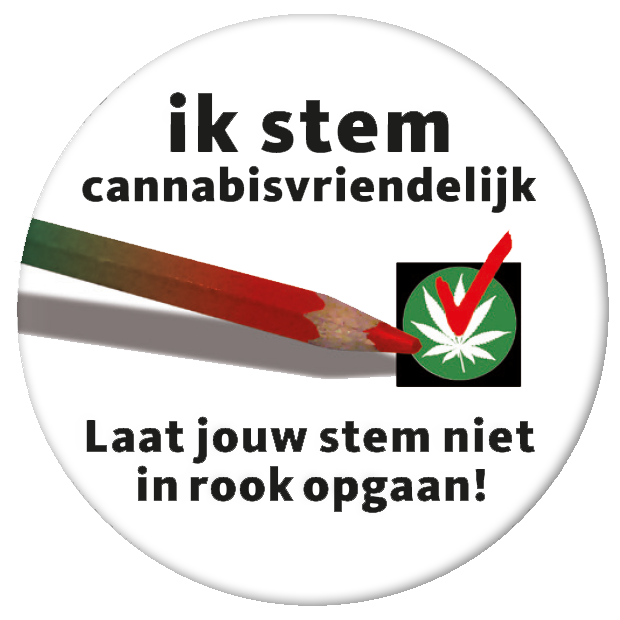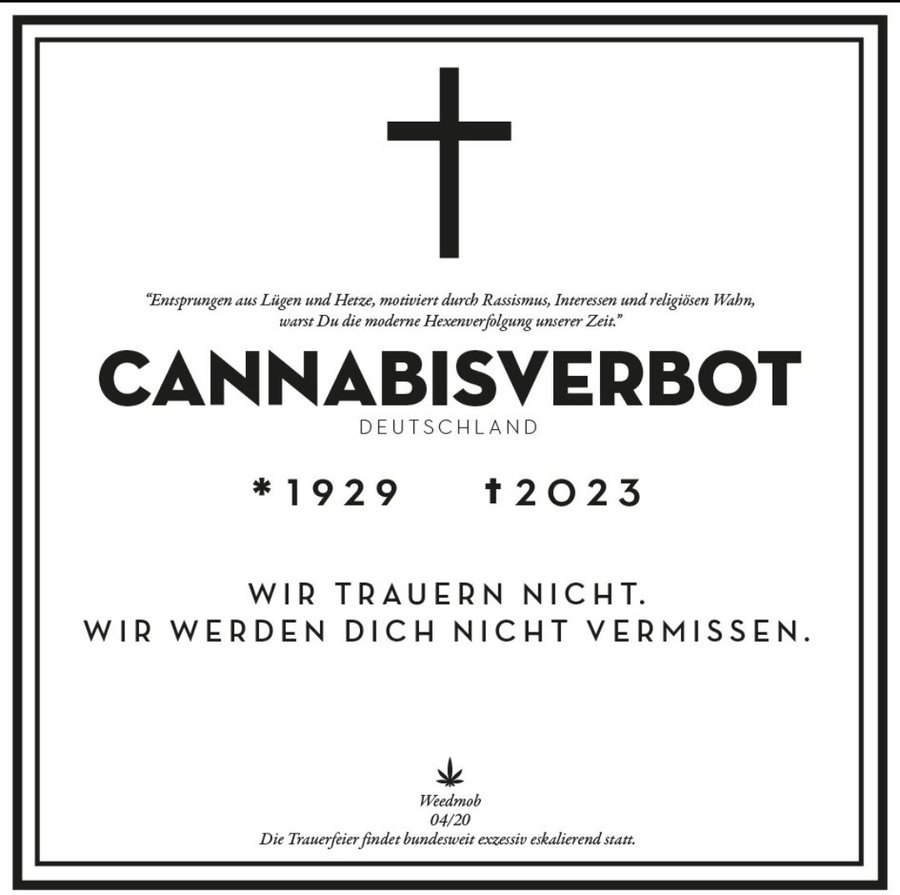
PODR 25 april 2023
Peace On Drugs Radio
Elke dinsdagavond tussen 19:00 en 21:00 is dit unieke programma - live en lineair - te beluisteren via internet.
Toelichting: Hieronder vind je een aantal bronnen die de basis vormen voor de onderwerpen die in de uitzending van vanavond aan bod zullen komen. Een wezenlijk deel van de teksten is hier te lezen, de complete tekst vind je in de orginele bron. Via de groengekleurde linkjes kom je bij de orginele bron. Zie je (...) dan gaat de tekst daar verder of er gaat tekst aan vooraf.
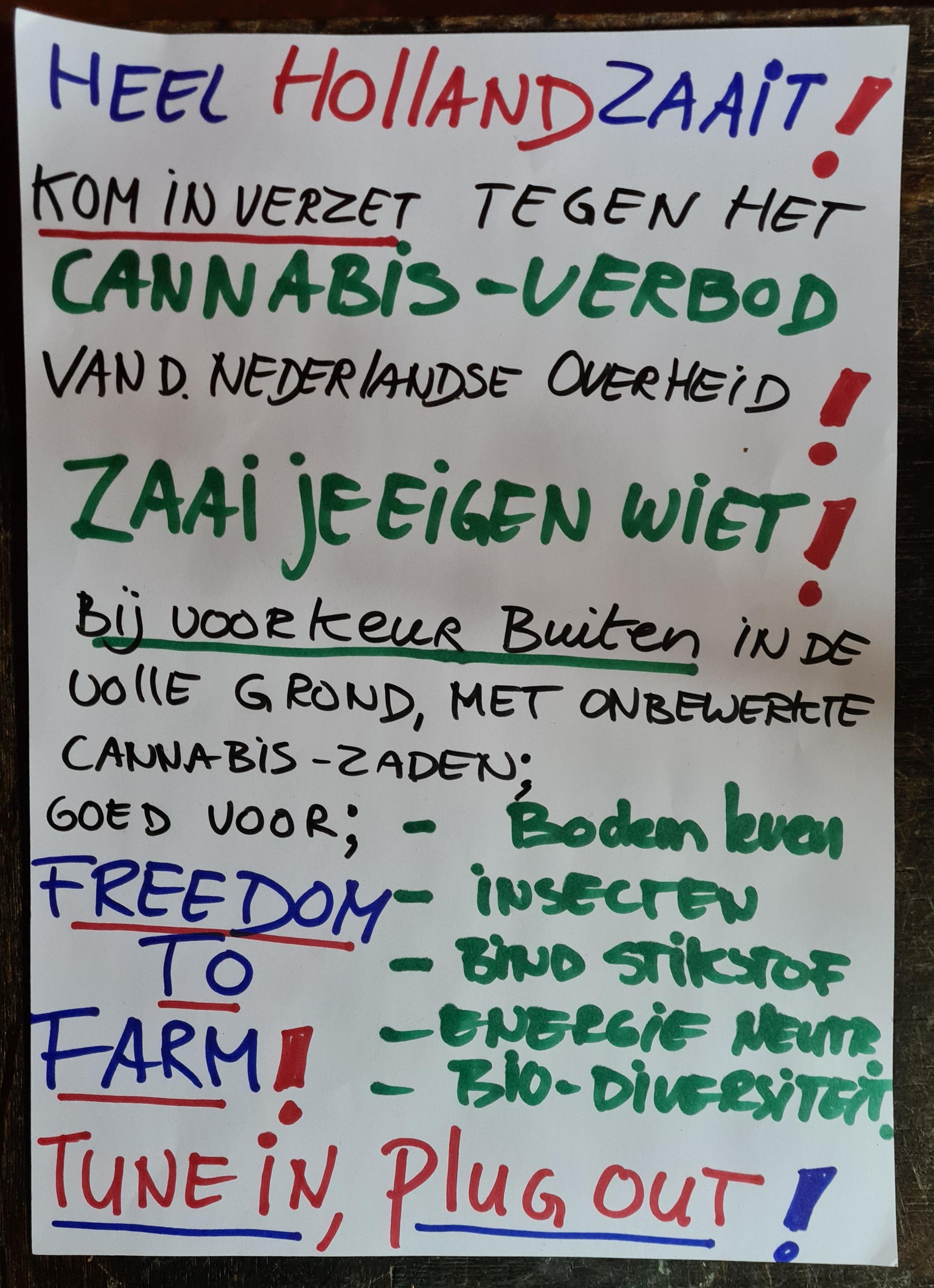
2023-04-20
Column • 420 in The Hague - high in de Hofstad - CNNBS.nl (25 april 2023)
In Den Haag hebben ze niet alleen goeie wiet, ze weten ook hoe ze een feestje moeten geven. Dat bleek opnieuw bij ‘420 in The Hague’, een gloednieuw evenement waarvoor strandclub Naturel op 20 april werd omgetoverd tot een Kingsize coffeeshop de luxe.
Waar komt de term 420 vandaan, en waar gaat het heen? - Sensi Seeds (2020-04-20)
Een eigen feestdag hebben is een van de bepalende componenten van een cultuur De feestdag van cannabisliefhebbers, 20 april, is niet gekozen maar ontstond geleidelijk. Jarenlang was er weinig bekend over de oorsprong van deze nevelige festiviteit en er werd veel over gespeculeerd. Dus waar staat 420 voor?
Als je een fan van cannabis bent, ben je waarschijnlijk bekend met de associatie met het getal 420 (uitgesproken als “four twenty”, nooit als “four hundred and twenty”) en als aanvulling de datum 20 april die in de V.S. als 4/20 wordt geschreven. Maar waarom is dit het magische getal voor cannabisgebruikers?
Er zijn tal van theorieën: Het is de verjaardag van Bob Marley (nee); het is de politiecode voor het waarnemen van cannabis roken (nee); het komt uit Bob Dylans Rainy Day Women #12 & #35, waarin het zinnetje ‘everybody must get stoned’ staat, omdat 12 x 35 = 420 (een raar toeval, maar nee); het is het aantal chemische bestanddelen in cannabis (nee, maar omdat we nog altijd cannabinoïden ontdekken, wie weet …); het is theetijd in Nederland (dat is niet eens zo. Nee). Dus waar komt de 420-traditie vandaan?
Oorsprong van 420
In werkelijkheid ontstond 420 in 1971 toen een groep schoolvrienden in San Rafael, Californië, op pad ging om een verlaten guerillateelt te zoeken. Het plan om elkaar na schooltijd om 16.20 bij het standbeeld van Louis Pasteur te ontmoeten, gaf ze de afkorting “420 Louis”.
Aangezien de jacht dagen duurde, lieten ze “Louis” vallen en werd “420”, al naargelang context en verbuiging, een linguïstisch Zwitsers mes voor alles wat met cannabis te maken had. De Waldo’s, zoals de groep zichzelf noemde, met verwijzing naar een muur waar ze graag op zaten, hebben de gewassen nooit gevonden. Dat (en hun naam) zou heel goed het gevolg kunnen zijn geweest van het vele cannabisroken dat met hun zoektocht gepaard ging. (...)
420 History: How April 20 Became Known as 'Weed Day' | Time (2023-04-20)
Over the past two decades, 21 states plus the District of Columbia and Guam have legalized marijuana for recreational use. That means marijuana smokers can smoke more openly than ever before on 4/20—a date that both marijuana smokers and non-smokers recognize as a national holiday for cannabis culture. Yet few actually know how the date got chosen.
Some say “420” is code among police officers for “marijuana smoking in progress.” Some note 4/20 is also Adolf Hitler’s birthday. And some go as far as to cite Bob Dylan’s song “Rainy Day Women #12 & 35” because 12 multiplied by 35 equals 420.
But, to put it bluntly, those rumors of the history behind how April 20, and 4/20, got associated with marijuana are false.
The most credible story traces 4/20 to Marin County, Calif. In 1971, five students at San Rafael High School would meet at 4:20 p.m. by the campus’ statue of chemist Louis Pasteur to partake. They chose that specific time because extracurricular activities had usually ended by then. This group — Steve Capper, Dave Reddix, Jeffrey Noel, Larry Schwartz, and Mark Gravich — became known as the “Waldos” because they met at a wall. They would say “420” to each other as code for marijuana. (...)
Regional ganja group using 4/20 to lobby for ‘sidelined’ traditional growers - Jamaica Observer (2023-04-20)
Despite the growing popularity of the ganja industry, with big business benefitting from grassroots- led initiatives like 4/20 celebrations, a regional group of ganja growers says traditional stakeholders continue to be sidelined.
The Caribbean Fairtrade Cannabis Group (CFCG) will be observing 4/20 day by participating in a series of activities aimed around advocacy, particularly as it calls on regional bodies, like Caricom, to place greater importance on the inclusion of the traditional/legacy cannabis farmers as the industry continues to develop.
In providing a snapshot of the development of the industry across the region, CFCG said that while most countries had made the shift from prohibition to decriminalisation, most, if not all, have tended to favour big business over traditional growers.
Citing Jamaica as an example, the group noted that it was distressing that real efforts for the inclusion of traditional cannabis growers have not manifested.
The group noted that in St Lucia, as well as Barbados, traditional growers continue to appeal to the policymakers to ensure that the cannabis regulations and framework being developed are inclusive, and that the framework will support the sustainable livelihood of the farmers, and their communities.
While lauding the recent announcement by Jamaica's Investment, Industry and Commerce Minister Aubyn Hill, to suspend fees for small traditional farmers for a two-year period, the group stressed that other regulatory reforms were urgently needed.
The CFCG is calling for more pointed efforts to support traditional growers, similar to recent developments in St Vincent and the Grenadines where lands have been specifically allocated to traditional farmers for the purpose of growing.
The regional group, which was formed in 2018, wants the industry's development to be given the highest priority on Caricom’s agenda, further calling for a regionally driven cannabis policy framework which has at its core, social justice and indigenous rights of the Caribbean people.
A culture of responsible cannabis use - Leonid McKay (timesofmalta.com) (20 april 2023)
Legislative changes, enacted in 2015, falling under the Drug Dependence (Treatment not Imprisonment) Act, and the more recent legislative amendments, introduced in 2021, partially decriminalising the personal cultivation and possession of cannabis, facilitate the state’s overarching role of addressing drug use in society without infringing international human rights law and commitments.
The “negative unintended consequences” of the criminalisation of personal drug use has been recognised as amounting to one of the gravest harms caused by drug use in society.
In June last year, on the International Day Against Drug Abuse, UN experts declared that data and experience have shown that the ‘war on drugs’ undermines health and social well-being and wastes public resources while failing to eradicate the demand for illegal drugs and the illegal drug market.
Such policies have far-reaching negative implications for the widest range of human rights, including the right to personal liberty; freedom from forced labour, from ill-treatment and torture; fair trial rights; the rights to health, including palliative treatment and care; the right to adequate housing; freedom from discrimination; the right to clean and healthy environment; the right to culture and freedoms of expression, religion, assembly and association; and the right to equal treatment before the law.
Moving closer towards a human rights centre, the introduction of alternatives to incarceration to address personal drug use are a clear example of a transitional drug policy framework. The national report on the drug situation and responses in Malta (2022) is an interesting tool to observe the social and human benefits of advancing a less criminalised environment.
The state is not relinquishing its international commitments to combat organised crime and international drug trafficking- Leonid McKay
When looking at arraignments for cannabis-related offences, one may notice a decrease in the number of cases dropping to a total of 153 in 2021 from the larger number of 356 cases in 2018.
Furthermore, between 2015 and 2021, a total of 2,124 persons in possession of less than 3.5 grams of cannabis appeared in front of the commissioner for justice and received a fine instead of being prosecuted within the law courts.
By diverting these cases away from the criminal justice system, Malta is prioritising public health and recognising that adopting a harm-and-risk-reduction approach will lead to a safer and more socially just society.
The decriminalisation of up to seven grams of cannabis, the possibility to cultivate up to four cannabis plants per household and to store up to 50 grams of dried cannabis at home further complement national efforts to promote a more just, inclusive and benevolent society.
The promotion of non-judgemental educational tools for people who use cannabis and the prospective establishment of the Cannabis Harm Reduction Associations further recognise the role of respectful dialogue and empowerment to establish a culture of responsible cannabis use in Malta.
By recognising the validity of human rights tools in developing drug policy measures, the state is not relinquishing its international commitments to combat organised crime and international drug trafficking.
As attested by the National Report on the Drug Situation and Responses in Malta (2022), the Malta police force and other officials from the customs and freight departments continued to work in tandem to protect our shared European borders and intercept large shipments in transit across the Euro-Mediterranean region.
The interception, confiscation and destruction of drugs destined for other markets remain at the core of Malta’s efforts to counter and disrupt violent and criminal drug organisations.
The establishment of the Authority on the Responsible Use of Cannabis continues to strengthen Malta’s international commitments to address and counter the world drug problem, in particular to: (i) disrupt criminal organisations involved in transnational drugs trafficking, (ii) delay the onset of cannabis use through preventive tools, (iii) advance full harm-and-risk-reduction services for people using cannabis and (iv) introduce a social justice framework to address the negative unintended consequences of criminalisation.
Today, April 20, we join you to celebrate this important day and invite you to share our call for harm reduction and social justice.
Leonid McKay is executive chairman of the Authority for the Responsible Use of Cannabis.
Citizens' initiative to legalise cannabis heads to Finnish Parliament after 4/20 peak | News | Yle Uutiset (2023-04-20)
A citizens' initiative aiming to legalise cannabis will go to Parliament for consideration after it passed the 50,000 signature mark on World Weed Day.
The citizen's initiative that gained the required 50,000 signatures as of Thursday, calls for the legalisation of the use, possession, personal cultivation, manufacture and sale of cannabis in Finland, subject to age restrictions.
The initiative also proposes the establishment of a a regulatory system for the production and sale of cannabis comparable to those regulating other intoxicants, with the aim of minimizing harm to individuals and society
According to the initiative, the difference between intoxicating cannabis and non-intoxicating cannabis, hemp, should be clearly defined so that agricultural entrepreneurs who grow hemp can continue normal operations.
The citizens' initiative was launched on October 20, and it garnered the required 50,000 signatures on 20 April, often referred to as World Weed Day or 4/20 Day. (...)
The ability of cannabis to increase food consumption has been known for centuries. In addition to producing hyperphagia, cannabinoids can amplify existing preferences for calorically dense, palatable food sources, a phenomenon called hedonic amplification of feeding. These effects result from the action of plant-derived cannabinoids that mimic endogenous ligands called endocannabinoids. The high degree of conservation of cannabinoid signaling at the molecular level across the animal kingdom suggests hedonic feeding may also be widely conserved. Here, we show that exposure of Caenorhabditis elegans to anandamide, an endocannabinoid common to nematodes and mammals, shifts both appetitive and consummatory responses toward nutritionally superior food, an effect analogous to hedonic feeding. We find that anandamide’s effect on feeding requires the C. elegans cannabinoid receptor NPR-19 but can also be mediated by the human CB1 cannabinoid receptor, indicating functional conservation between the nematode and mammalian endocannabinoid systems for the regulation of food preferences. Furthermore, anandamide has reciprocal effects on appetitive and consummatory responses to food, increasing and decreasing responses to inferior and superior foods, respectively. Anandamide’s behavioral effects require the AWC chemosensory neurons, and anandamide renders these neurons more sensitive to superior foods and less sensitive to inferior foods, mirroring the reciprocal effects seen at the behavioral level. Our findings reveal a surprising degree of functional conservation in the effects of endocannabinoids on hedonic feeding across species and establish a new system to investigate the cellular and molecular basis of endocannabinoid system function in the regulation of food choice. (...)
The Cannabis Edible Goes Mainstream | The New Yorker (2023-04-20)
For the past decade, the pinnacle of California package design has been the Apple box, with its minimalist exterior, layers of white-on-white fittings, and glossy tech product encased within. Sleek, seamless, promising you the world—made in China, designed in California—at the swipe of your fingertips. But recently a different industry has taken over innovation in hand-held products. An industry interested in local. An industry interested in social. An industry interested in taking you on a surprisingly autobiographical trip.
I speak of cannabis, now legal for recreational use in twenty-one states and D.C. The cultural handoff from high tech to high times seems just right for our not quite post-pandemic moment, with its halting return to IRL encounters, its panoply of stressors, and its personal branding of everything. Growing the cannabis market, however, has required repackaging a product that originally came in generic plastic bags and rolling papers, in varieties that were named for a location, an aroma, or an in-joke. Things have become a little more complicated now that cannabis is legit and you are selling a product in a palm-size package, from dispensaries that cater to millions of newbies. (The California cannabis market hit $5.3 billion in 2022, an eight-per-cent decrease from the year before.) (...)
Demonstratie tegen blowverbod binnenstad: ‘Ik wil een jonko roken in de zon, maar heb geen balkon!’ (parool.nl) (2023-04-20)
Enkele tientallen ‘stoners uit de binnenstad’ en hun sympathisanten hebben donderdagmiddag voor de Stopera gedemonstreerd tegen het blowverbod dat half mei ingaat. ‘Ik wil een jonko roken in de zon, maar heb geen balkon!’
‘Méér zon, minder politie!’ Een, ook letterlijk, kleurrijk allegaartje van blowers ‘en sympathiserende niet rokende anarchisten uit de binnenstad’ hangt donderdagmiddag op de granieten ring aan de Amstelzijde voor de Stopera.
Jonko van 25 centimeter
Met geurige jonko’s – óók een buitenmodel van een centimeter of 25 – honden, fruit en sapjes. Op een geel spandoek het motto: ‘Jointje roken in de zon, hoe moet dat nu, zonder balkon?’
Op een matras is in grote rode letters ‘Happy 420’ gespoten, naar het tijdstip van 4.20 uur in de middag op 4-20 (vandaag dus) waarop Amerikaanse gebruikers hun ‘tegencultuur’ vieren door openlijk te blowen.
Half mei gaat in de oude binnenstad het verbod in op blowen op straat, naast het al bestaande verbod op het drinken van alcohol op straat.
Wat door het stadsbestuur wordt verkocht als ‘een strijd tegen drukte en overlast op de Wallen’, is volgens de demonstranten een strijd tegen ‘de Amsterdammers die niet teringrijk zijn’. Amsterdammers die ‘níét 10 euro willen betalen om op een terras te mogen zitten’. De politie en de handhavers krijgen nóg meer een vrijbrief om de zwakkeren en minder vermogenden ‘lastig te vallen’. (...)
Halsema grijpt in: zeven souvenirwinkels in binnenstad gesloten na verkoop softdrugs - NH Nieuws (2023-04-20)
Zeven souvenir- en tabakswinkels in de binnenstad zijn door burgemeester Halsema gesloten nadat er een groot aantal joints met hennep zijn aangetroffen. De sluiting is voor een periode van zes maanden.
De politie heeft tijdens een controle van de arbeidsinspectie op 23 maart dit jaar een onderzoek ingesteld in tien souvenirwinkels. Bij zeven zijn overtredingen geconstateerd.
In de zeven winkels zijn in totaal 2540 joints van 1270 gram gevonden, waarvan er bijna 2000 in één winkelpand aan de Damstraat lagen. Het gaat om souvenir- en tabakswinkels op de Dam, Damrak, Damstraat, Rokin en Singel. Volgens de burgemeester staat hier het woon- en leefklimaat onder druk.
Veiligheid
Hennepjoints mogen alleen onder strenge regels rondom de gezondheid en veiligheid in coffeeshops worden verkocht. Handel, gebruik en de aanwezigheid van drugs hebben een nadelig effect op de openbare orde, zegt Halsema. "Het kan leiden tot onveiligheid voor de passanten en omwonenden vanwege overlast en de aantrekkingskracht van de winkel op criminele activiteiten." (...)
Cannabis Legalization Through a Racial Lens | Harvard Independent (2023-04-20)
A conversation about cannabis legislation and racial injustice highlighted the possibility for change.
GAURI SOOD AND SACHI LAUMAS VISUALS: CANDACE GARDNER 04.20.23: THE WEED ISSUE, NEWS
“We’ll have edibles for you on the way out,” moderator Khalil Gibran Muhammad jokingly promised at the start of the Institute of Politics JFK Forum Event on Wednesday, April 12th. Though the discussion did not end with edible goodie bags, it did discuss the ramifications and historial path of the racialization and legalization of cannabis across the United States and Canada.
The panel consisted of Akwasi Owusu-Bempah and Tahira Rehmatullah, co-authors of the new book Waiting to Inhale: Cannabis Legalization and the Fight for Racial Justice. Muhammad, a professor of History, Race, and Public Policy at Harvard Kennedy School, moderated the discussion which was hosted by the Institute of Politics and Institutional Antiracism and Accountability Project.
Muhammad began the discussion by asking Owusu-Bempah and Rehmatullah for background on the history of racial justice relative to cannabis and the use of cannabis criminalization to target Black and brown communities. Together, they crafted a clear history of the unjust cycles of drug criminalization tracing back to the Great Depression, as well as the profiling and discrimination that permeates to today. Their stories were peppered with shocking statistics, riveting personal stories, and opportunities for the audience to get involved.
Waiting to Inhale: Cannabis Legalization and the Fight for Racial Justice - Harvard Book Store
#GMM23
Global Marijuana March - Deutschland (gmm-deutschland.de) 

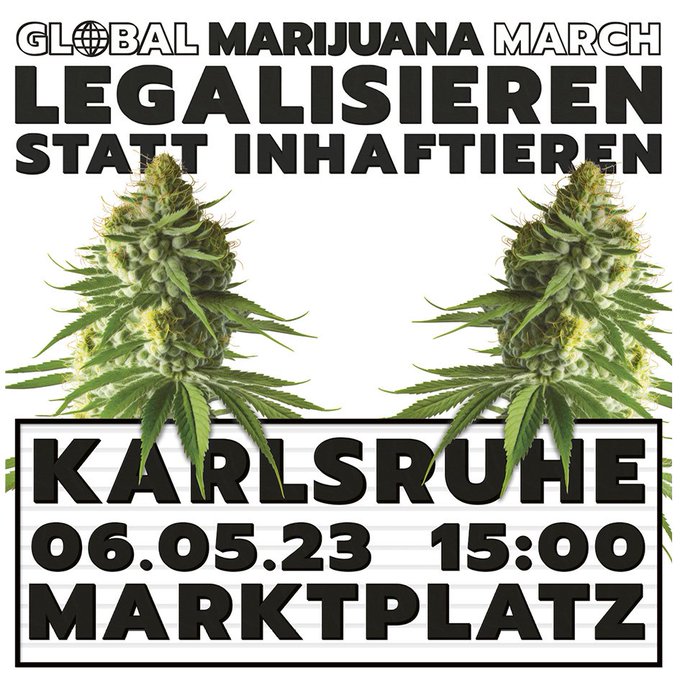
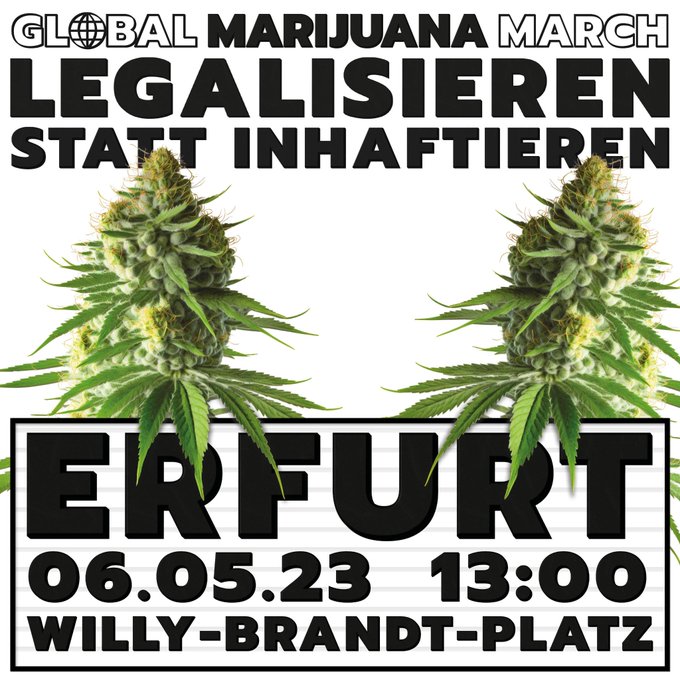
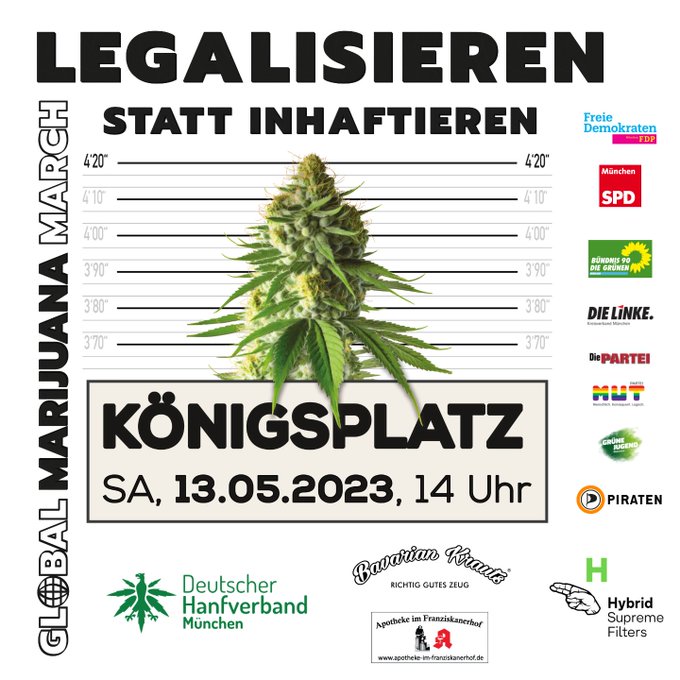

Vijf voor twaalf voor Parlement.com en Europa-Nu.nl - Parlement.com (20 april 2023)
Ze spreken eigenlijk vanzelf: de websites Parlement.com en Europa-Nu.nl. Voor veel journalisten, onderzoekers, studenten, scholieren, ambtenaren en geïnteresseerde burgers zijn ze al jarenlang een vaste, betrouwbare en rijke bron van informatie. Je zou ze als onmisbaar kunnen bestempelen. Parlement.com krijgt wekelijks bijna 60.000 bezoekers (in verkiezingsjaar 2021 zelfs ruim 90.000) en Europa-Nu.nl krijgt er 50.000 per week.
Met behulp van de websites is onder meer het digitale biografisch archief van de Stichting PDC (Parlementair Documentatiecentrum) te raadplegen. Dit bestaat sedert 1974 en het bevat gegevens over alle landelijke publieke ambtsdragers, zoals parlementariërs, bewindspersonen en staatsraden, sedert 1796. Het bevat niet alleen leesbare biografieën, maar er zitten ook allerlei statistische data aan vast die het mogelijk maken (kwantitatief) wetenschappelijk onderzoek te doen naar hun geslacht, regionale komaf, familieachtergrond, opleiding en beroep. Het archief heeft dan ook als basis gediend voor een reeks wetenschappelijke publicaties. Het maakt het daarnaast beide Kamers der Staten-Generaal mogelijk de eigen historische ontwikkeling in beeld te brengen. Het biografisch archief leidde in 2022 bij de Stichting PDC tot welgeteld 3.100 informatieverzoeken voor uitgebreide informatie en/of analyses, nadere toelichting en verdiepende informatie. Deze verzoeken waren afkomstig van wetenschappers, de beide Kamers der Staten-Generaal, beleidsmakers, het maatschappelijk middenveld, studenten, en burgers met behoefte aan verdiepende en verbredende informatie.
Parlement.com biedt bovendien toegang tot uitgebreide informatie over het wetgevingsproces, parlementaire rechten en hun gebruik, kabinetten, verkiezingen en politieke medespelers naast regering en parlement. Actuele informatie wordt aangevuld met historische invalshoeken. Daarmee is Parlement.com een soort digitaal staatkundig archief en nieuwsbron in één. Het staat scholieren, studenten en onderzoekers ten dienste met zowel onmisbare als betrouwbare informatie, bijeengebracht door een onafhankelijke en deskundige redactie.
Europa-Nu.nl is voortgekomen uit de ervaring bij het Europese referendum in 2005 dat de kennis over de Europese Unie, haar instituties en werkwijze bij velen te kort schoot. De site voorziet nu in die kennis, niet alleen van de Unie, haar organen en activiteiten maar ook van al haar lidstaten en hun politieke instellingen. Ook deze site wordt gemaakt door een zowel deskundige als onafhankelijke redactie, die actualiteit en historische achtergrond van de Europese samenwerking met elkaar verbindt en uitlegt.
Zulke informatie behoort inderdaad vanzelfsprekend te zijn, maar dat is zij helaas niet.
De beide websites zijn een initiatief van de Stichting PDC, een van de partners in het Montesquieu Instituut, waar diverse onderzoeksinstellingen in den lande met elkaar samenwerken aan valorisatie van wetenschappelijke kennis. De site van het MI, alsmede Parlement.com en Europa-Nu.nl, worden geproduceerd door PDC. Dat heeft jaren lang de sites, alsmede het biografisch archief, op eigen kosten ‘in de lucht gehouden’.
Europa-Nu.nl heeft in de eerste jaren van haar bestaan een kleine subsidie ontvangen; de site Parlement.com heeft het van meet af aan zonder enige ondersteuning door de overheid moeten stellen.
Dat is een aantal jaren goed gegaan, maar is op termijn financieel niet houdbaar. Het maken en dagelijks onderhouden van volwassen websites is een kostbare activiteit. Als niet op korte termijn de rijksoverheid bereid is aan de bekostiging van deze websites en het biografisch archief bij te dragen, dan zal het PDC/Montesquieu Instituut niet langer in staat zijn deze drie onmisbare bronnen van kennis te onderhouden en beschikbaar te stellen. Juist in een tijd van opkomend nepnieuws en alternatieve feiten is het voortbestaan van websites als Parlement.com en Europa-Nu.nl, en de beschikbaarheid van het biografisch archief, onontbeerlijk voor wie uit belangstelling of door professioneel belang op de hoogte wil blijven. Ondersteuning zoals die verschaft is aan bijvoorbeeld de Staatscommissie parlementair stelsel (Staatscommissie-Remkes) zou dan ook niet meer mogelijk zijn.
Verdwijning van Parlement.com en Europa-Nu.nl, alsmede het biografisch archief, zou een ongekende en welhaast onaanvaardbare vorm van kapitaalvernietiging zijn.
Vindt u ook dat deze website moet blijven bestaan? Teken dan nu een digitale steunbetuiging en laat daarin weten waarom u Parlement.com en/of het biografisch archief en/of Europa-Nu.nl van waarde vindt!
Prof. dr. B. H. van den Braak en prof. dr. J.Th.J. van den Berg zijn vaste columnisten van de website www.parlement.com
Varia
Hoe zou de wereld eruitzien als wiet alcohol vervangt? - NPO3.nl (19 april 2023)
Verzin jij soms ook van die scenario’s als: wat zou er gebeuren als iedereen blind wordt? Of hoe zou de wereld zijn zonder oorlog? Wij vroegen ons af: hoe zou deze aardbol eruitzien als alcohol wordt vervangen door wiet. En jij bent vast ook benieuwd.
- Vrijmijo's
De donderdag- of vrijdagmibo’s op werk zullen er iéts anders uit komen te zien. Want terwijl jij je baas Henk aan zijn reet likt en subtiel probeert te hinten dat die nieuwe functie die vrijkomt uitermate geschikt is voor jou, zuigt Henk gewoon aan een dikke jonko. De vrijmijo dus. Hij zegt je alles toe, want natuurlijk is die nieuwe baan voor jou. Jullie praten urenlang over filosofische kwesties en zijn van mening dat jullie het bedrijf prima staande kunnen houden met z’n tweetjes. Kleine tegenvaller op de maandagochtend erna, want Henk kan zich vrij weinig herinneren van jullie indrukwekkende gesprek. (...)
Deur van de Goese coffeeshop gaat weer open voor mensen uit het buitenland | Goes | pzc.nl (21 april 2023)
Mensen uit het buitenland zijn binnenkort weer welkom in de Goese coffeeshops. Dat werd donderdagavond duidelijk tijdens de gemeenteraadsvergadering in Goes.
Nu worden deze mensen nog geweigerd op basis van het zogeheten i-criterium. Dat bepaalt dat alleen mensen die ingeschreven staan bij een Nederlandse gemeente een coffeeshop in mogen. VVD en D66 dienden donderdag een motie in om dit criterium in Goes, bij wijze van proef, voor een jaar af te schaffen, zodat buitenlanders wel weer hun drugs mogen kopen in de twee coffeeshops in de stad.
Straatoverlast
De gedachte achter die wens is dat de buitenlanders die nu hun neus stoten bij de coffeeshop in de handen van straatdealers vallen, met straatoverlast als gevolg. ,,Die overlast wordt tot op de dag van vandaag ervaren door bewoners, ondernemers en bezoekers van de stad’’, zei Chantal Peereboom (VVD). Marco Eestermans (PvdA/GL) zei dat nu bovendien het gevaar bestaat dat jonge kwetsbare mensen, wellicht met een licht verstandelijke beperking, worden geronseld om drugs te dealen op straat. Peereboom verwees naar een proef in Vlissingen, waarbij het i-criterium werd afgeschaft. Die leverde goede resultaten op. De overlast op straat nam af. Daarom zijn de mensen uit het buitenland in Vlissingen nu blijvend welkom in de shops.
Alle fracties in de gemeenteraad gaven, in meer of mindere mate van enthousiasme, aan zo'n proef in Goes ook wel te zien zitten. Met name voor CDA en SGP/CU is dat vooral een pragmatische keuze. Ze benadrukten tegen het gebruik van softdrugs te zijn. ,,Maar we hebben ook zorgen over de overlast die er nu is’’, zei Frans van der Knaap (CDA). Burgemeester Margo Mulder liet weten, naar aanleiding van de resultaten in Vlissingen, al bezig te zijn met het opzetten van een dergelijke proef. Daarop besloot een meerderheid van de gemeenteraad dat het niet meer nodig was de eerder genoemde motie aan te nemen.
Niet de eerste
Wanneer de proef precies ingaat, en mensen uit het buitenland dus weer welkom zijn in de Goese coffeeshops, is nog niet duidelijk. Goes is overigens allesbehalve een koploper in het weer afschaffen van het i-criterium. Veel andere steden in met name het zuiden van het land deden dat al eerder, nadat ze zagen dat de ellende alleen maar toenam op het moment dat de mensen uit het buitenland de coffeeshops niet meer in mochten. Het i-criterium was ooit ingevoerd om de stroom aan buitenlande drugstoeristen een halt toe te roepen.
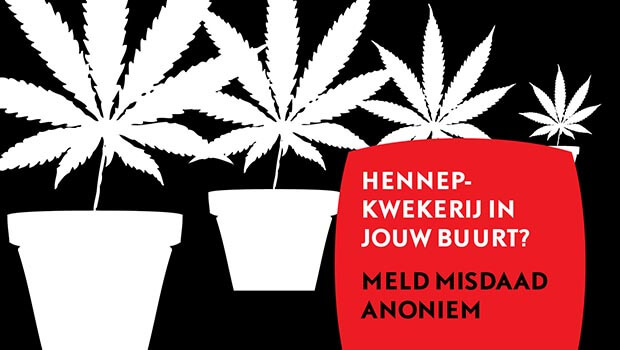
München soll Modellkommune für Cannabis werden - München - SZ.de (sueddeutsche.de) (19 april 2023)
Zim’s cannabis hopefuls face EU blowback - The Zimbabwe Independent (newsday.co.zw) (21 april 2023)
Wat gebeurt er als je een worm cannabis geeft? Hetzelfde als bij mensen: hij krijgt lekkere trek! (scientias.nl) (21 april 2023)
Singapore set to execute man over 1 kg of marijuana next week: activists | Coconuts (19 april 2023)
Cannabis Social Club in Madrid: Vorbild für Deutschland? - Politik - SZ.de (sueddeutsche.de) (16 april 2023)
Cannabis im Straßenverkehr: Ampel will THC-Grenzwert anpassen (rnd.de) (21 april 2023)
